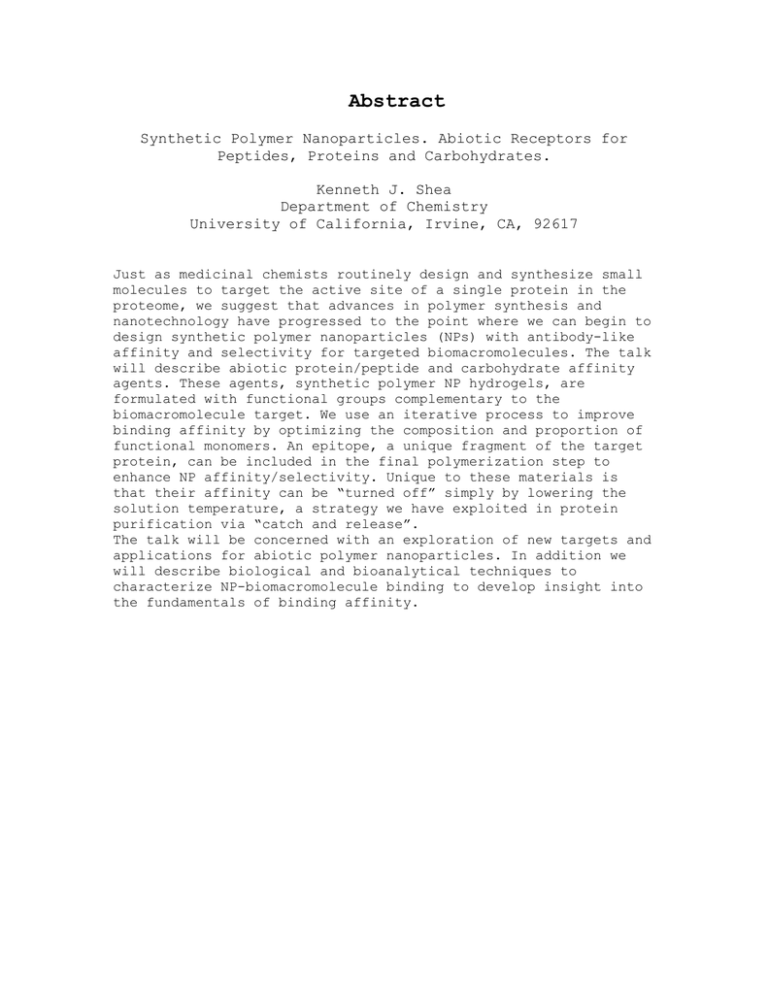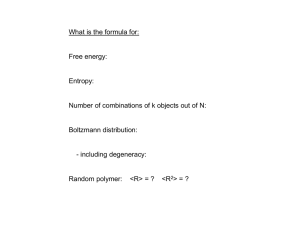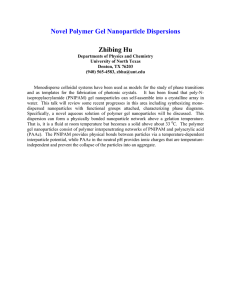Abstract
advertisement

Abstract Synthetic Polymer Nanoparticles. Abiotic Receptors for Peptides, Proteins and Carbohydrates. Kenneth J. Shea Department of Chemistry University of California, Irvine, CA, 92617 Just as medicinal chemists routinely design and synthesize small molecules to target the active site of a single protein in the proteome, we suggest that advances in polymer synthesis and nanotechnology have progressed to the point where we can begin to design synthetic polymer nanoparticles (NPs) with antibody-like affinity and selectivity for targeted biomacromolecules. The talk will describe abiotic protein/peptide and carbohydrate affinity agents. These agents, synthetic polymer NP hydrogels, are formulated with functional groups complementary to the biomacromolecule target. We use an iterative process to improve binding affinity by optimizing the composition and proportion of functional monomers. An epitope, a unique fragment of the target protein, can be included in the final polymerization step to enhance NP affinity/selectivity. Unique to these materials is that their affinity can be “turned off” simply by lowering the solution temperature, a strategy we have exploited in protein purification via “catch and release”. The talk will be concerned with an exploration of new targets and applications for abiotic polymer nanoparticles. In addition we will describe biological and bioanalytical techniques to characterize NP-biomacromolecule binding to develop insight into the fundamentals of binding affinity.



